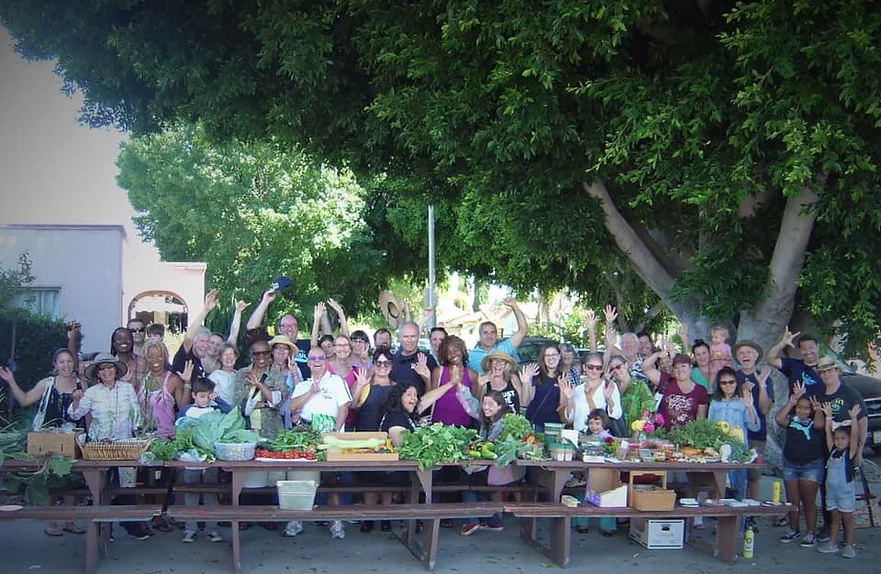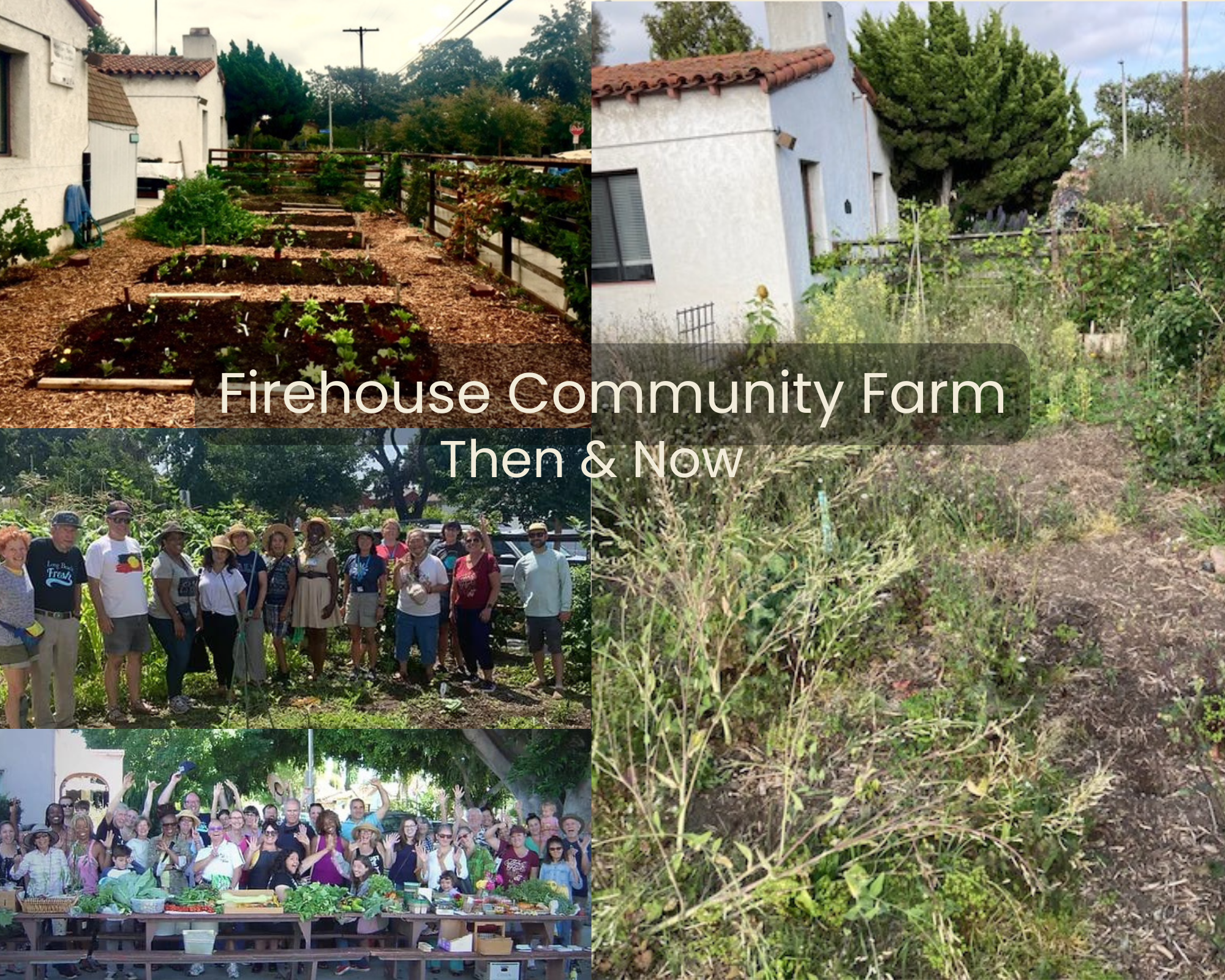“Do Not Lock Out Community Gardeners!” An Open Letter to Long Beach’s City Manager, Mayor, & City Council from the Firehouse Farm
5 minute readIn September 2013, Long Beach firefighters moved out of their old fire station, a Spanish Colonial-style building, now listed as a historical landmark, at Gundry and 65th Street. The Nehyam Neighborhood Association was granted a lease by the city in 2015 to create a demonstration climate-friendly garden, rain-catching swales, a mini-park, and a teaching farm on the property.
Nehyam partnered with Surfrider Foundation and the University of California Master Gardener program to create the Firehouse Community Farm. Work included planting seven parkway trees, installing an irrigation system, and preparing a teaching farm plot on the south side of the building. Master Gardeners began offering spring and fall classes on growing fruits and vegetables; these classes have continued ever since. For almost seven years backyard farmers and gardeners from around the city have held the North Long Beach Crop Swap here on the first Saturday of the month. The Firehouse Community Farm shares all programs and events here.
About 3,000 volunteer hours have been donated and thousands of dollars have been raised by Nehyam, the UC Master Gardeners, and others to grow the Firehouse Community Farm. Improvements include two fruit-tree orchards, a shade garden, a demonstration patio garden, a composting area, and a pollinator garden where a colony of bees produce enough honey to give more than 30 crop swappers a four oz. jar every year. Repairs have been made to the building itself and tables, chairs, appliances and kitchen equipment have been added.
The Nehyam Neighborhood Association has tried to renew its lease since early last year by writing and calling the city staffer who supervises the leases, Mary Torres. We did this numerous times. In December, Public Works Director Eric Lopez toured the firehouse to discuss the planned repairs Nehyam would make to the firehouse building and grounds, thanks to a $50,000 grant. He was enthusiastic about the Nehyam effort and said he would recommend that the City grant Nehyam a five-year lease.
Instead, shortly after 9th District Councilmember Joni Ricks-Odie was sworn in on December 20th, her office sent Nehyam an email saying the locks had been changed and that access to the site was being reviewed and would be decided by her council office. Moreover, Nehyam and the Master Gardeners were told that the visits by University of California Master Gardener staff and other “like” events would now be controlled by the council office. Ricks Odie’s actions were counter to anything we had ever heard of being done; public works “owns” and controls city property, not electeds.
Since the lockout, inquiries to Public Works and the City’s leasing office about who will have access and how the gardens and trees will be cared for have gone unanswered. UC-sponsored Master Gardener program classes are currently being held elsewhere. Correspondence to the City Council remained unanswered although when Forrest Osburn, Ricks-Odie’s field deputy, came to our monthly Nehyam meeting, he was asked about caring for the gardens, where the weeds are now more than three feet high. He said he had not seen the weeds but he guessed that Public Works would now care for the gardens.
But it’s too late for the tropical trees we planted last year; several already have died from lack of water. The crop swaps have also been moved to The Growing Experience within the Carmelitos housing project. Gardens and farm plots are not being attended to, weeds are three feet high. City agencies, not elected officials, are authorized to manage public programs and sites. Everyone is losing out since the 9th District Council Office seizure of the property.
Tomisin Oluwole
Fragmented Reflection I, 2021
Acrylic on canvas panel
24 x 30 inches
Click here to check out our interview with Tomisin Oluwole, a literary and visual artist based in Long Beach.

Instead of gunking up our site with ads, we use this space to display and promote the work of local artists.
* Nehyam Neighborhood’s only park, a 30-foot square area designed by an Eagle Scout, is now overtaken with weeds along with the rest of the gardens.
* Experiments, research, and collaborations with the University of California, California State University Fresno, Thriving Earth, California ReLeaf and others all are halted.
* An area federally identified for its high incidence of childhood obesity and early-onset diabetes now has no classes on growing fruits and veggies, a known pathway to better nutrition.
* Taxpayers are losing out on a $50,000 donation for repairs to the building secured by Nehyam.
The Nehyam Neighborhood Association, UC master gardeners and most importantly, the citizens of Long Beach deserve much better than this. Don’t lock up plants and lock out community!
We are counting on you, as decision makers, to act now to reopen the Firehouse Community Farm and to offer a new lease to the property for the Nehyam Neighborhood Association.

Note from editors: Deputy City Attorney Rich Anthony told Nehyam via email on March 8 that City Manager Tom Modica would be deciding who would manage the property. An update was said to be coming in a couple weeks. Nehyam is still awaiting that update at the time of this publication. Their lease has still not been renewed.


 jfrowe@rocketmail.com
jfrowe@rocketmail.com




